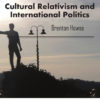Much of the world is aging rapidly. Both the number and proportion of people aged 65 years and older are increasing, although at different rates in different parts of the world. The population of the world is adding oldest-old members at a much faster rate than any other age group. This means that the numbers of very old people will increase and the proportion of the population that is very old will rise.
The development of public policies for the elderly has been a highlight on the agenda of international health organizations, in the attempt to propose guidelines for nations that still need to set up social and care programs to respond to this population group’s emerging needs. All the men and women in the world who will be very old in 2050 are alive today. Their maximum numbers are known. But how long these men and women will work, how long they will live, and what their resources and their needs will be are not known. We know little about the risks of illness and disability that will face older adults over the next half century. It is known that governmental actions in public health policies study basic health programs, observing their organization and professional practices in the community and their professional intervention to guarantee human rights. Therefore, public health policies’ goals need to be constantly revised, with a view to seeking institutional strategies aimed at social promotion, health prevention and the guarantee of human rights in the most vulnerable population segments.
Ageing and Public Policy covers policy making and analysis, specifically how the state addresses the challenges that arise in economic, social, political and health arenas. With the collective knowledge of expert contributors in the field, this book explores the challenges arising from the ageing of populations across the globe. The objective of this book is to discuss the legal aspects involved in the development of elderly care policies, considering the socio-historical-political context, and in view of the aspects that outline the wellbeing of an aged individual. Although population ageing is widely acknowledged to be one of the main social conquests in the twentieth century, it is also recognised that has brought about important challenges on public policies. This book describes the evolution of the public policy agenda in relation to the population ageing matter, both at the international and national levels.













